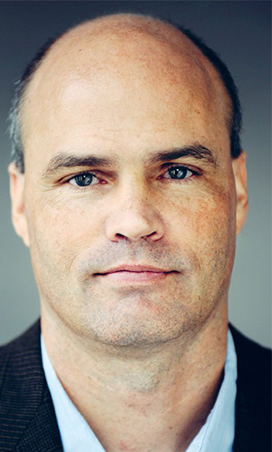Why People Die by Suicide

Friday, June 28, 2019
9:00AM - 3:00PM PDT
CE Training for Community and RVP Providers with Dr. Thomas E. Joiner
Location: OMSI Theory Auditorium
1945 SE Water Avenue
Portland, OR 97214
Cost: Community Providers: $99.
FREE for RVP Volunteer Providers.
Meals are provided for all attendees.
CEU Credits: 5
Who Should Attend: Any health care provider who wants to learn more about suicidal behavior, epidemiology, risk factors and assessment, and developments in suicide prevention.
Interested in becoming a volunteer provider? Attend this event for free by emailing our Director of Programs at .(JavaScript must be enabled to view this email address)
What You Will Learn:
In his new theory of suicidal behavior, Thomas Joiner proposes three factors that mark those most at risk of death: the feeling of being a burden on loved ones; the sense of isolation; and, perhaps chillingly, the learned ability to hurt oneself. He tests the theory against diverse facts taken from clinical anecdotes, history, literature, popular culture, anthropology, epidemiology, genetics, and neurobiology—facts about suicide rates among men and women; white and African-American men; anorexics, athletes, prostitutes, and physicians; members of cults, sports fans, and citizens of nations in crisis.
This training includes seven learning objectives:
- to review basic facts about the epidemiology and risk factors for death by suicide.
- to learn about a new theory of suicidal behavior.
- to learn about anecdotal, clinical, and scientific evidence that evaluates this new theory.
- to learn about approaches to suicide risk assessment.
- to learn about developments in the treatment of suicidal behavior.
- to learn about developments in suicide prevention.
- to understand the experience of people who are bereaved by suicide.
CE faculty:
Dr. Thomas E. Joiner
Thomas Joiner went to college at Princeton and received his Ph.D. in Clinical Psychology from the University of Texas at Austin. He is The Robert O. Lawton Distinguished Professor in the Department of Psychology at Florida State University (FSU). Dr. Joiner’s work is on the psychology, neurobiology, and treatment of suicidal behavior and related conditions. Author of over 625 peer-reviewed publications, Dr. Joiner is the Editor-in-Chief of the academic journal Suicide & Life-Threatening Behavior, and was awarded the Guggenheim Fellowship. He received the Dublin Award for career achievement in suicide research from the American Association of Suicidology, as well as research grants from the National Institute of Mental Health and Department of Defense (DoD). The Lawton Professorship and the Dublin Award are the single highest honors bestowed, respectively, by FSU and the American Association of Suicidology. In 2017, he was named a Fellow of the American Association for the Advancement of Science.
He was a consultant to NASA’s Human Research Program, and is the Director of the DoD-funded Military Suicide Research Consortium, a $30 million project which was recently extended for a second five-year phase at a similar funding level.
Dr. Joiner has authored or edited eighteen books, including Why People Die By Suicide, published in 2005 by Harvard University Press, and Myths About Suicide, published in 2010, also with Harvard University Press. The book Mindlessness: The Corruption of Mindfulness in a Culture of Narcissism, came out in 2017, from Oxford. Largely in connection with Why People Die By Suicide, he has made numerous media appearances, including two appearances on the Dr. Phil Show. He runs a part-time clinical and consulting practice specializing in suicidal behavior, including legal consultation on suits involving death by suicide.
Day of the Event: Registration and doors open at 8:30AM.
Meals and refreshments are provided for all attendees.
Parking is free at OMSI - Please park in the OMSI lot and note your parking spot number. When you sign in at the registration table you will be asked for your parking spot number to ensure your car is not ticketed.
Contact: Mike McCarrel .(JavaScript must be enabled to view this email address)
503-954-2259
Share this online:




